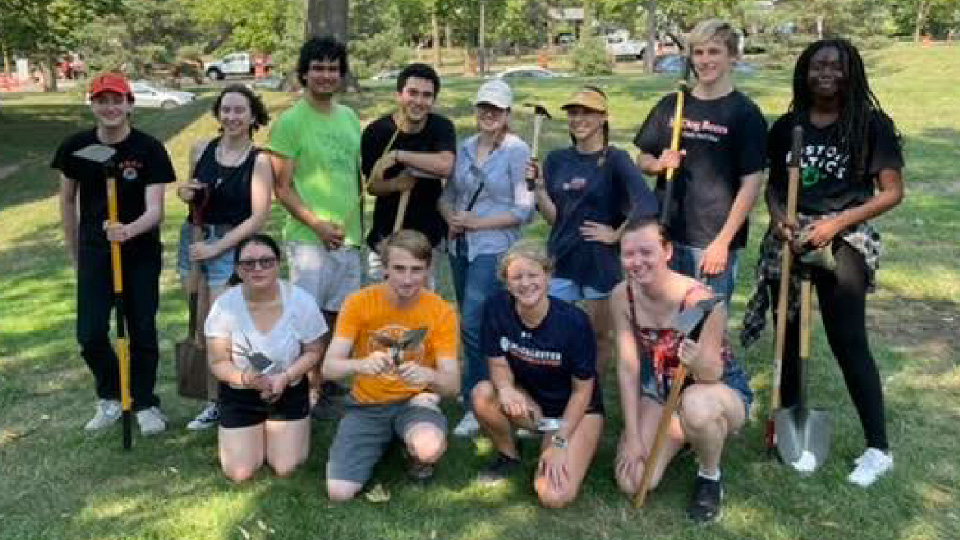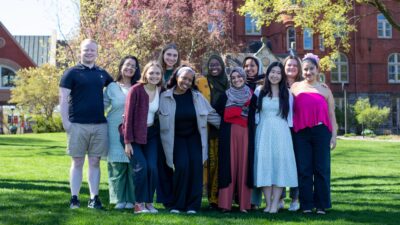
By Alexandra McLaughlin ’16
“Located just down the street from campus, the 106 group is considered one of the most progressive and innovative CRM firms in the country.”
—Professor Andy Overman.
A collaboration with the renowned 106 Group exposes archaeology students to field work and careers in cultural resource management

This semester, Maraka Bradford ’24 (Portland, Ore.) made an important contribution to Minnesota’s cultural history and heritage. She discovered pottery and a quartz point—perhaps from a spear or arrowhead—from around the year 1000. These artifacts likely belonged to indigenous, nomadic groups moving along the Mississippi River in the Woodland period.
As part of the Advanced Archaeology seminar, Bradford and her classmates spent two weeks in the field with the 106 Group, a nationally reputable cultural resource management firm in St. Paul focused on identifying and preserving cultural heritage sites.
“Located just down the street from campus, the 106 group is considered one of the most progressive and innovative CRM firms in the country,” said Professor Andy Overman. “They’re famous for working with local tribes and involving them in projects.”
In the upper Midwest, cultural resource management usually entails identifying and excavating Native American sites, Dr. Overman noted.
In this project, the 106 Group lended their expertise on a proposed bike path expansion in Rice Creek Park in Anoka County. A preliminary survey of the land had revealed evidence of cultural heritage.
The Macalester students worked alongside archaeologists from the 106 Group to excavate and catalog any artifacts found along the proposed bike path.
“Working with the 106 Group was an incredible experience with tons of hands-on learning,” said Verity Wray-Raabolle ’25 (Owatonna, Minn). “We were able to talk with archaeologists about their experiences post-undergrad and hear their thoughts and advice on the field. It was awesome to see what one possible career in archaeology could look like.”
In addition to field work, the class exposes students to emerging issues and technologies in archaeology. For example, technology specialists from Macalester’s Digital Resource Center trained the students on flying drones and using drone photography for archaeology.
The seminar is aimed at preparing students for careers in archaeology or related disciplines, such as museum work, archival work, cultural heritage law, or conservation. “This is an enormous and fast-growing area,” Prof. Overman said.
Through classes at Macalester, Bradford has unearthed interests in art history and archaeology. A classical archaeology major, she hopes to pursue a career that combines the disciplines.
“I have learned that archaeology is a lot more than digging,” Bradford said. “You have to be very detail-oriented, and it’s a slow process. Doing the 106 Group project showed me that even the small discoveries are wins. Everything matters in the grand scheme of putting together history.”
###
January 3 2023
Back to top




